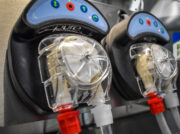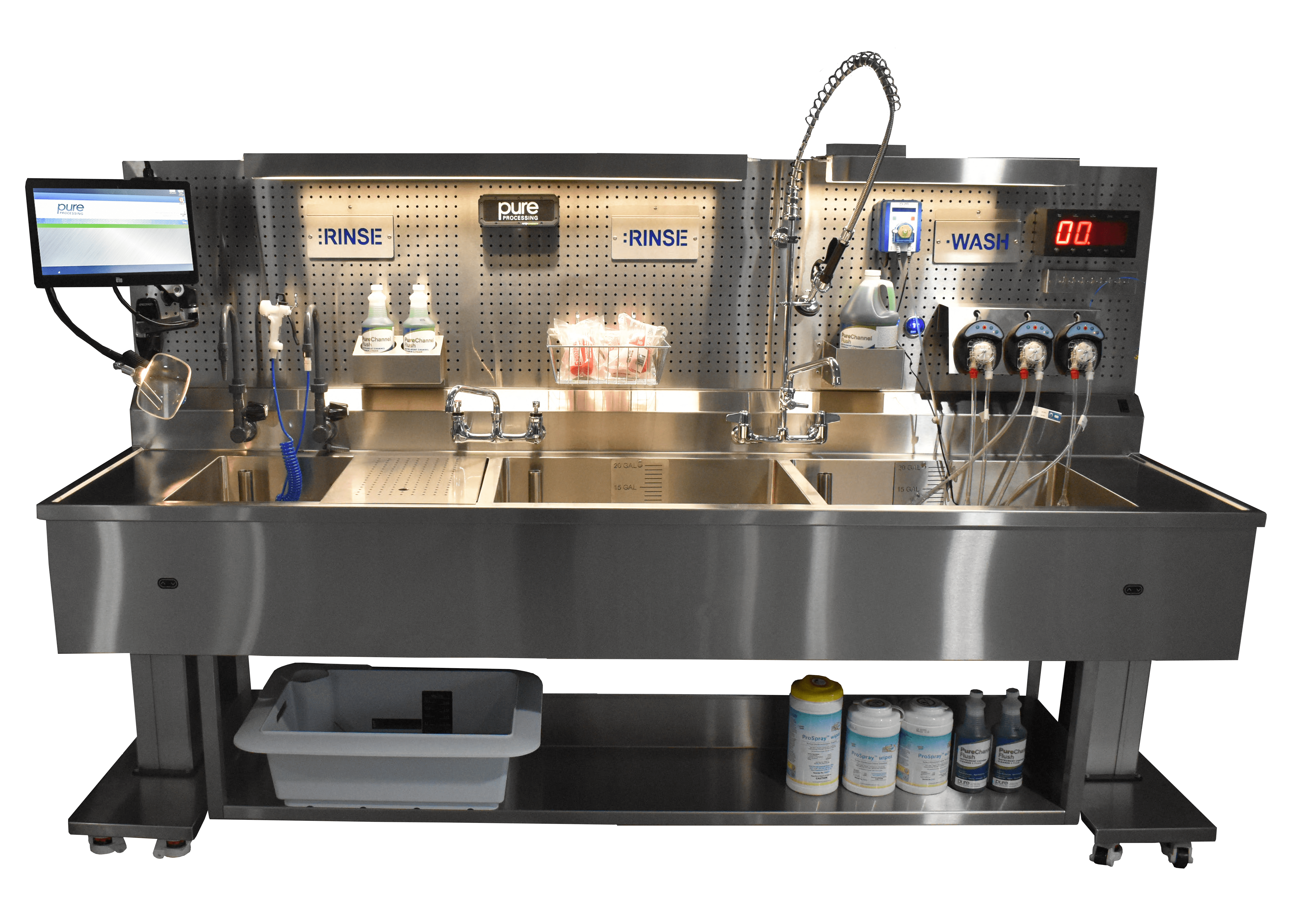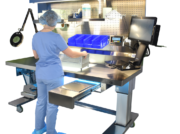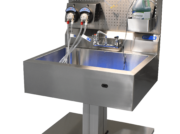
Perspectives: Traveling SPD Manager
When Ivy Magruder decided that it was time to leave her career in HR, she wasn’t sure where she might land next, but she knew change was what she needed. After an interview at a hospital down the street, a promotion to SPD manager within a year, a few department changes and the creation of a new company, Magruder has since become an accomplished traveling SPD manager. Magruder’s love for problem solving has allowed her to help a myriad of departments since her career change.
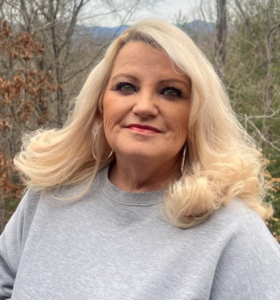
With exposure to many departments throughout her years in SPD, Magruder has seen, learned, and experienced a lot, giving her a unique perspective within the sterile processing industry.
Magruder’s unique perspective as a traveling SPD manager offers interesting insight into what she’s witnessed and solved as she jumps into the trenches and leads departments across the country, six months at a time.
Bringing in a traveling manager
Magruder explained that while there are many reasons a hospital might bring in a traveling SPD manager, she generally experiences one of three scenarios when she signs a contract:
- A sterile processing department is without a manager, and they’re struggling to get applicants. This has become a more common occurrence with the significant staffing shortages seen in recent years and is influenced by the location of the facility. Facilities serving areas with a small employment pool to draw from often struggle to fill critical roles.
- Similarly, if a department is stretched incredibly thin and doesn’t have the ability to fill a manager role internally, travelers will be brought in to serve as a stop gap to keep the department operating efficiently while a suitable person to take the position full time is found.
- Traveling managers can also be hired when a department is lacking adequate management and persistent problems need to be solved until a full-time manager can be found.
Common trends across sterile processing departments
After managing so many departments, Magruder identified some commonalities among them all, both positive and negative. Some common areas for improvement are usually:
- Lack of training: Magruder has often found that many departments she comes into lack the training necessary to operate efficiently. Training becomes a top priority in her plans to improve these departments.
- Breaking habits: There’s no replacement for experience, but Magruder has found that the most experienced techs have the toughest time breaking old habits in favor of new.
- Quality concerns: Quality programs are not always as robust as they should, including regular audits and taking corrective action when a problem persists.
- Policy problems: As Magruder explained: “What you do becomes your policy, regardless of what you’ve got written down.” Many departments have written policies that outline how processes are supposed to be done, but oftentimes aren’t followed to with a level of consistency that matters. Lack of enforcement can be a pervasive problem, and addressing it is critical to achieve compliance.
The sterile processing personality
While no group of people are universally the same, Magruder has found that people working in sterile processing often share some terrific traits:
- Passion: Most people care about doing the right thing in their department. Whether it’s meticulously following an IFU, or instilling this passion in their teammates, SPD teams fully understand how their actions impact patient safety.
- Problem solvers: When mistakes are made, Magruder has found that most people in sterile processing are interested in solving them together, asking questions like, “how was it missed?”, and “how can we avoid this problem in the future?”
Magruder had this to say about working in SPD:
“If you do not get warm fuzzy feelings when you work in SPD, then this is not the job for you. There’s no glory in SPD, no neon lights.”
Entering new departments
Many departments are similar, but no two departments are ever the same. Nonetheless, Magruder has certain steps she takes when she takes the helm of a new department:
- Identify training gaps: With many departments exhibiting the need for additional training, Magruder looks to identify where training is needed accomplish this quality for compliance.
- Assess tracking systems: If the department is using an instrument tracking system, she finds out everyone that has access to it and pares that number down to strictly necessary personnel. With too many people able to access the backend of a tracking system, problems are almost inevitable. Whether it’s misconfiguring a setting or duplicating instruments, unnecessary problems lead to unnecessary work resolving them.
- Explain the plan: “Respect is earned, not demanded.” When Magruder enters a department, she explains what the game plan is going to be and lets the team know that it is a team effort.
“I’m here to get this department in compliance. Some changes will happen gradually over the course of six months. Other, more immediate changes are doing to be made tomorrow. We’re all in this together to make sure we’re keeping the patient safe.”
- Understand productivity: Magruder assesses the department’s throughput and productivity levels. Establishing these data points help to determine where time, effort, and money needs to be applied for improvement. It also allows the department to see their improvement over time.
- Analyze staff hours: Analyze how scheduling is currently handled and whether adequate staffing levels are being met for every shift. If you can’t get the right number of people working every shift, departments will start falling behind.
- Make instrument purchases: Magruder investigates the most commonly used instruments and ensures that they have enough of them. Increasing instrument inventory gives SPD some breathing room on in-demand sets, allowing the OR to get what they need without demanding or perpetually creating rush requests.
Being a traveler
Magruder explained that it’s common for the presence of travelers to have a negative impact on morale when they enter a department. “Travelers make good money,” Magruder said, “they need to be earning it.”
The key to making a positive impact as a traveler in a new department according to Magruder is demonstrating you’re bringing value to the department and the team. “Travelers need to step up and show integrity at every level of sterile processing.”
Travelers need to be on top of standards, guidelines, and IFU requirements. This need is amplified because, in Magruder’s experience, many departments that are turning to travelers don’t have a dedicated educator, meaning that travelers can bring valuable knowledge to departments that can’t commit additional resources to training and education.
Conclusion
Traveling SPD Managers are vital for departments that are struggling to fill these roles. They bring valuable insights, approaches, and problem-solving skills that help departments reach their goals and sustainably achieve compliance long after the traveler’s contract has expired.
Jumping from department to department, while not always easy, provides traveling SPD managers the ability to continually refine approaches to common problems and deliver better and better results for the departments they serve. Through on-going self-education, meticulous attention to detail, an ability to rally departments towards common goals, and sheer passion for the industry they serve, traveling SPD managers go the extra mile to keep patients safe all across the country.
Interested in other perspectives from SPD? Check out these other blog posts:
Educator
About: Perspectives
Perspectives is a series of articles written to present a deeper look into the unique profiles, experiences, and backgrounds in the sterile processing community. By evaluating our industry through the unique lenses of its people, we can better understand our impact on each other, our patients, and our communities. Thank you to those who offered their time to write these articles with us. We appreciate your time, and your commitment to your patients and staff!
